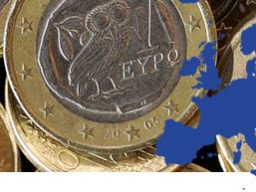Suddenly there were thousands, summoned through Facebook: “The Desperate Generation” on Puerta del Sol in Madrid and its equivalents on the streets of Athens and Lisbon.
Many of these young people are committed Europeans standing up for the ideal of enlightenment in an increasing darkness. “We are the future”, as one of the banners said at a demonstration in Lisbon last spring. But what future? And whose Europe?
It is certainly not the Europe of educated young Spaniards, Portuguese or Greeks. Many of them are unemployed and still living with their parents, who in turn have lost their jobs or have had their wages cut by 30 per cent. European Union austerity decrees have put many families between a rock and a hard place. They are being forced into a poverty that most economists predict will last for a decade at least. The young people on the streets are a social time bomb waiting to go off. They have been swindled by banks and politicians and feel they are the mercy of the destructive power of the financial market.
Today’s protesters are not to be compared to those of 1968. Today it is hard to distinguish between friend and foe. When a group of these young people in Lisbon met with one of the leftist militants who led the Carnation Revolution against Salazar in 1974, the veteran said: “Our revolution was easy. We had an enemy – the government and the dictator. Who are you fighting?”
This uncertainty indicates that Europe today is barely political. What we are seeing is not the formation of a European super state, as the eurosceptics warned of not long ago, but an increasingly unsteady and weak union. “The atmosphere in Europe is one of total demoralization”, according to José Ignacio Torreblanca of the European Council on Foreign Relations. The euro crisis makes this obvious: a steady stream of new solutions, retracted after a few days and replaced by new, billion-euro improvisations that contravene treaties, regulations and previous announcements.
The former Greek Prime minister Giorgios Papandreou, in a letter to the eurozone chairman Jean-Claude Juncker, complained about the tactics and the indecision of the EU leaders: “a cacophony of voices, instead of a common agenda”. But how can there be agreement when self-interest is predominant?
 German Chancellor Angela Merkel is “criminally self-involved”, claimed Nicolas Sarkozy at a dinner at the Elysée Palace, according to Le Canard Echainé. And the French president himself? The nations who should be supporting the EU have become more and more strapped and porous. The anger over the financial world’s blunders has not exactly meant more faith in the state.
German Chancellor Angela Merkel is “criminally self-involved”, claimed Nicolas Sarkozy at a dinner at the Elysée Palace, according to Le Canard Echainé. And the French president himself? The nations who should be supporting the EU have become more and more strapped and porous. The anger over the financial world’s blunders has not exactly meant more faith in the state.
The governments of Germany and France, normally seen as the core of the EU, face crushing election defeats. Portugal’s and Ireland’s governments have already fallen as a result of the euro crisis. In Finland, the eurosceptic True Finns party is still not part of the government, but is closing in: recent polls show that it is the most supported party in the country. Finland could end up like the Netherlands, where Geert Wilders’ far-right party indirectly controls government policy.
All over Europe, states are dismantling themselves. Austerity policies result in welfare cuts. These cuts undermine the idea of the good state. Experiences from the interwar period made Christian democrats, liberals and social democrats join forces in the conviction that the state was necessary as protection against destructive markets; not only that, the state was also a source of personal development. Now all of this is about to disappear.
*
So, whose Europe are we living in? The euro crisis has shown that this is the Europe of the big nations at the small nations’ expense, the Europe of banks rather than of citizens. Germany and France have tried to protect their own banks’ enormous businesses in Greece, Ireland and Portugal. But with weak capital buffers, the banks poured out loans to other banks, to construction projects and to governments in the south – who, since the finance crisis burst the bubble in 2008, have had a hard time servicing their debt. Instead of demanding that their own banks take responsibility, imposing debt rescheduling and a higher equity, Merkel and Sarkozy have rigged what critics call a “fake debate”. What was in fact the consequences of the financial crisis of 2008 has instead been described as the result of budgetary indiscipline. Although this might be true for Greece and possibly Portugal, countries such as Ireland and Spain had a large budget surplus and low national debt when Lehman Brothers crashed in 2008.
Countries facing liquidity crises have since been granted loans from the EU, but in return have been forced to cut on welfare and social security. The problem with these emergency loans is that they come with sky-high interest, which results in increased debt, leading to new cuts in public spending.
Citizens are thus being forced to bear the mistakes of the banks in an attempt to ring-fence the problems within a few crisis-stricken countries and prevent market anxiety spreading north. But when the markets begin to doubt the ability of Spain, Italy or Belgium to repay their loans, these hopes plummeted. Patching up on an open wound is not enough. Guilio Tremonti, Italy’s finance minister, warned the parliament in Rome that the euro crisis might start spreading: “There’s no more room for political mistakes. Like on the Titanic, not even the first class passengers will survive.” The debate in Europe has not, as in Sweden, focused on whether the Greeks are thieves, but whether the common European edifice, after 60 years of crisis and reconstruction, is about to crumble.
*
Again, whose Europe? It is a Europe characterized by increasing nationalism. Just like during the Weimar republic in Germany in the 1920s, today’s nationalism is kindled by political ineffectiveness and an economically strapped petit bourgeoisie. The issue concerns not only the new poverty in indebted countries in the south. In northern Europe, the margins of the middle class are gradually getting smaller – deep in debt, they no longer think that solidarity is something they can afford.
Nationalism is the next-door neighbour of selfishness and self-interest. We see rightwing populism at work also when popular and intelligible EU reforms are made void, for example when the Danish People’s Party reintroduced controls at the borders to Germany and Sweden. Border controls can now also be “temporarily” reinforced in other parts of the union “in extreme situations”. If countries are allowed to decide for themselves what an extreme situation might be, Schengen belongs to the past.
Migration issues are a Pandora’s box, if you open it just a little, hatred and dirt emerge. We are now seeing that box opening. For all these years, the EU has managed to avoid describing social problems in terms of ethnicity. Now it is suddenly legitimate.
This is more than a conflict between France and Italy over North African refugees: the Dutch government wants to throw out Polish workers; Finland has introduced identity cards in a different colour for “foreigners”; Spain has refused to admit more than the 800,000 Romanians that are there now.
Cecilia Malmström, the EU Commissioner for Home affairs, is fighting an important struggle. But she will lose it. The course is set. Politicians are blatantly opting for short-term self-interest over human rights, instead of bearing the weight of open borders together.
*
Sometimes great ideas fall. History tells us that when that happens it is often so that a large number of people regard the defeat as unthinkable – up until that very moment when it happens. In his book The End of the West, David Marquand compares Europe’s politicians to aristocratic families who still fly the banner but are actually bankrupt. It is now all stiff upper lip, despite the fact that the two most prestigious European projects, the euro and the Schengen space, have never been under such pressure.
The Union no doubt has made great progress in sixty years. Just look at the incorporation of eastern Europe’s tattered dictatorships or see how competently a new European Poland handled its EU presidency. At the same time, there is more and more dissonance between what Europe says it wants and what it actually accomplishes. At the Copenhagen climate conference in 2009, the EU was sidestepped by the US and China. In earlier times, the Europe and the US were separate worlds, like Mars and Venus, but today there are similarities. Both are trying to come to grips with mountains of debt, while China, India and Brazil are still booming. No one would repeat today the discourse common just ten years ago – that Europe will be the world’s most dynamic economy. To do so would invoke roars of laughter.
European leaders went strangely silent when the national revolts in the Arab world erupted. This is just another example of how fat, white, self-absorbed Europe time and time again proves irrelevant in a new world taking shape beyond its borders.
*
Is Europe democratic, then? Less and less. Swedish political scientist Sverker Gustavsson has described three conditions for democracy to work: democracy must “deliver”, i.e. be able to solve problems; democracy must admit that there are various routes and that opposition is legitimate; and democracy must be predictable, not arbitrary.
If we use these criteria to test the way the euro crisis has been handled, the result is discouraging. The ability to solve problems is weak. Mistakes have been made and decisions have been wrong and ill-timed. Fear of a free debate about the financial markets has resulted in politicians lying – this has been admitted. But how do you make citizens interested in an imminent crisis when there are no clear alternatives and when politicians don’t dare to tell the truth? Finally, there has been a lack of predictability, as the EU keeps changing its stand, adopting ideas it rejected one month earlier. Paragraph 125 of the Lisbon treaty stipulated that no rescue packages were to be allowed, but then rescue packages were issued. It is forbidden for the ECB to buy government bonds from countries in crisis, yet this has been done through the back door.
The fact that indebted countries are now governed by “guardians” is also harmful to democracy. These countries lose their sovereignty as austerity measures are forced onto them from above and devaluation is not an option. Schools are shut down. Hospitals reduce the number of operations. Salaries are cut. Pensions are cut. State property is sold off. In Greece there is talk of selling off “cultural goods”. Are we talking about the Parthenon here? Where is the respect?
The question why the citizens should bow down to decree is legitimate. Especially when they have hardly been able to influence these measures, for which there is no majority within the population. The sense of powerlessness is a breeding ground for large-scale rightwing populism. The design of the euro not only threatens the EU but democracy in general.
*
When the euro was introduced, some of its architects warned of the dangers of a monetary union without a fiscal union: common European taxes and expenditure. The disadvantage of countries facing economic problems being unable to devalue could be avoided only if there were resources to distribute and even out economic imbalances.
This was perhaps the result of the monetary union being first and foremost a political project, with its origins in French fear of a reunited Germany that somehow needed to be embedded and balanced. In any case, the warnings went unheeded, drowned by the sound of celebratory fireworks when the euro was introduced.
The question now is whether it is too late to try to form the European economic government that was “forgotten” at the birth of the euro. A number of recent decisions point in this direction, i.e. strengthen the supranational character of the union. But what do voters actually say about increased supra-nationalism? They say that they don’t want to pay for the debt of others.
“Hardly any European head of state or government would want to risk their job by deepening European integration,” wrote former German commissioner Günter Verheugen glumly in a recent book.
But this is exactly what they are trying to do.
That is why I believe that the euro system will collapse, as a consequence of a popular revolt by a European kind of Tea Party movement consisting of well-off Germans, Dutch and Finns unwilling to pay for the countries in debt. But also by the fact that Greeks, Irish and Portuguese won’t accept being forced into a straightjacket of poverty by their patronizing guardians in the north. Unfortunately this might be a long and painful process, since a great deal of political prestige has been invested the monetary union. But the tensions between North and South, elite and popular currents, are too strong to just go back to business as usual.
Writing in Die Zeit, German economy journalist Fritz Vorholz claimed that the antagonisms are now so strong that a smaller eurozone might be the only way for EU to survive. This way, countries in the south might have a chance to recover, even if the price is high: a few years of financial chaos, failing banks and flight of capital.
Simultaneously however, the EU has a very important role to play beyond the euro. We depend on each other, whether we like it our not. And if the focus was shifted away from how to save the common currency, ideas of how to achieve a truly social Europe could be presented.
*
What happened to the social Europe the Left dreamed of?
Not so long ago, politicians were convinced that the euro would protect them against value crises of type seen in the 1990s. But the economic imbalances between northern and southern Europe were underestimated and financial speculators found alternative ways. Politicians on the Left were seduced by market economy models and could not imagine that globalization would claim so many victims, or that the room for politics to act and react would shrink to such an extent.
And so we have been left with a European Union dominated by the German obsession with budget discipline. There is nothing wrong with having your budget in order, but in turn it has paved the way for a neoliberal agenda and the argument that we have too much welfare.
Does Europe belong to the Right or to the Left? For quite some time, the Left-Right conflict dimension has been losing importance. Everybody has gathered in the middle: social democrats talk like liberals and conservatives borrow their tone of voice from the Left. At the same time, a new dimension of conflict appears, as a subtext to the euro crisis: the global against the local. To avoid politics becoming completely irrelevant, the Left must form leftist ideas and stand by them.
If the rightwing response to the crisis is to try to keep the banks from assuming their responsibility for the debts they have created, the leftwing alternative must be to make sure the banks pay, one way or another. The message to the banks must be: there is no such thing as a free lunch. Instead of a conservative politics of austerity, without a glimmer of hope for growth, we need a Marshall plan for Greece, Ireland and Portugal, as the American economist Barry Eichengren. among others, has suggested. If the answer of the Right is to improvise solutions for those countries on whose downfall the market happens to speculate, the answer from the Left must be to try to prevent future crises through European government bonds and stricter regulations of the banks. These are all suggestions that should be considered even if the eurozone falls apart.
But wouldn’t this cost billions? Well, everything is cheaper than today’s European waste of money. Imagine that the hundreds of billions of euros being pumped into Greece, Ireland and Portugal at random, in order make its way to the German, French and British banks, were instead spent on financing loans to repair Greek harbours, to construct high-speed trains for the Portuguese, to invest in intelligent climate technology for the Irish, just to mention a few societal needs.
With or without the euro, state finances need to be in order. But investments that can create jobs and belief in the future also have to be there – not least for a Left that still believes in a social Europe.

 German Chancellor Angela Merkel is “criminally self-involved”, claimed Nicolas Sarkozy at a dinner at the Elysée Palace, according to Le Canard Echainé. And the French president himself? The nations who should be supporting the EU have become more and more strapped and porous. The anger over the financial world’s blunders has not exactly meant more faith in the state.
German Chancellor Angela Merkel is “criminally self-involved”, claimed Nicolas Sarkozy at a dinner at the Elysée Palace, according to Le Canard Echainé. And the French president himself? The nations who should be supporting the EU have become more and more strapped and porous. The anger over the financial world’s blunders has not exactly meant more faith in the state.





